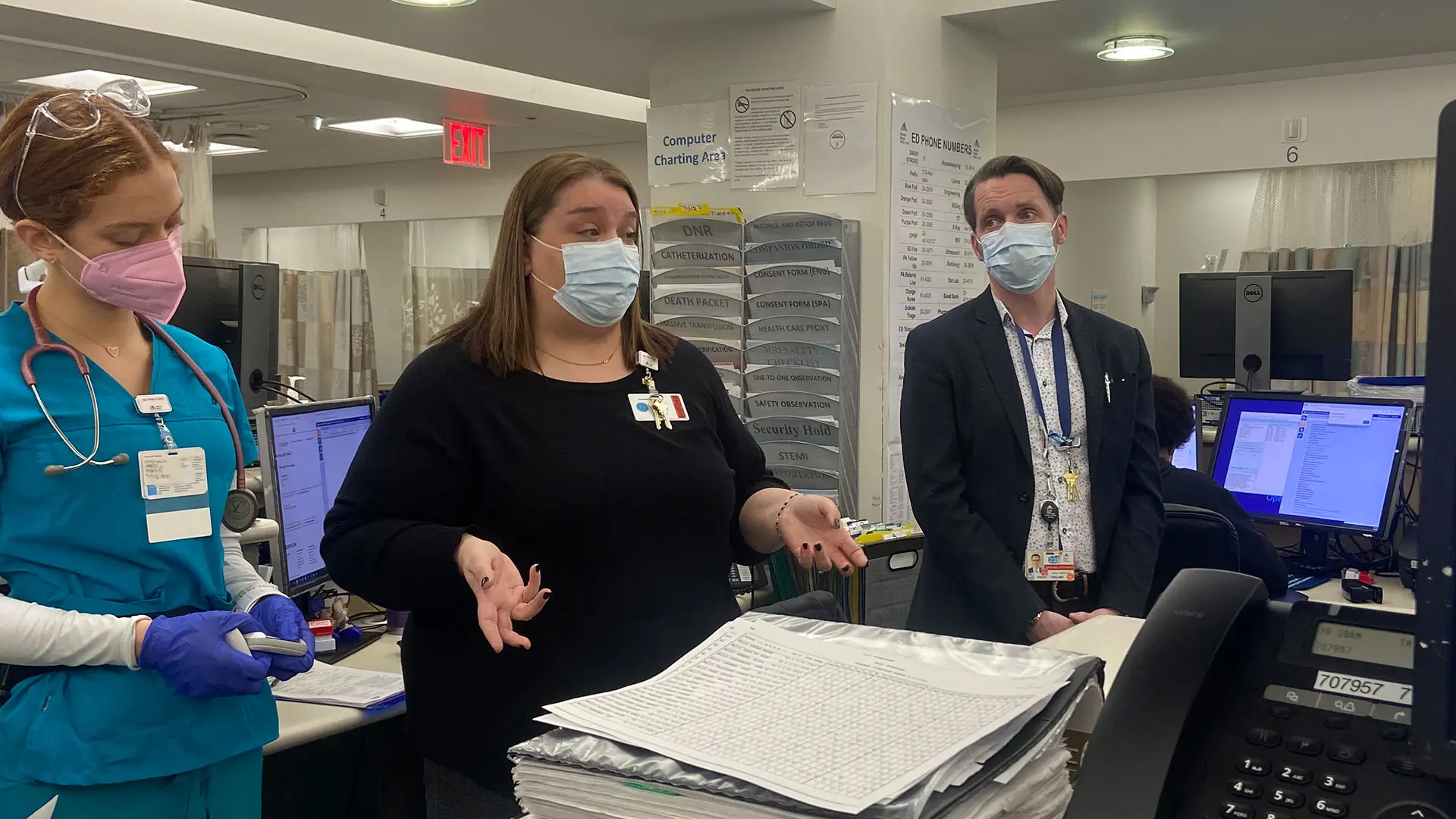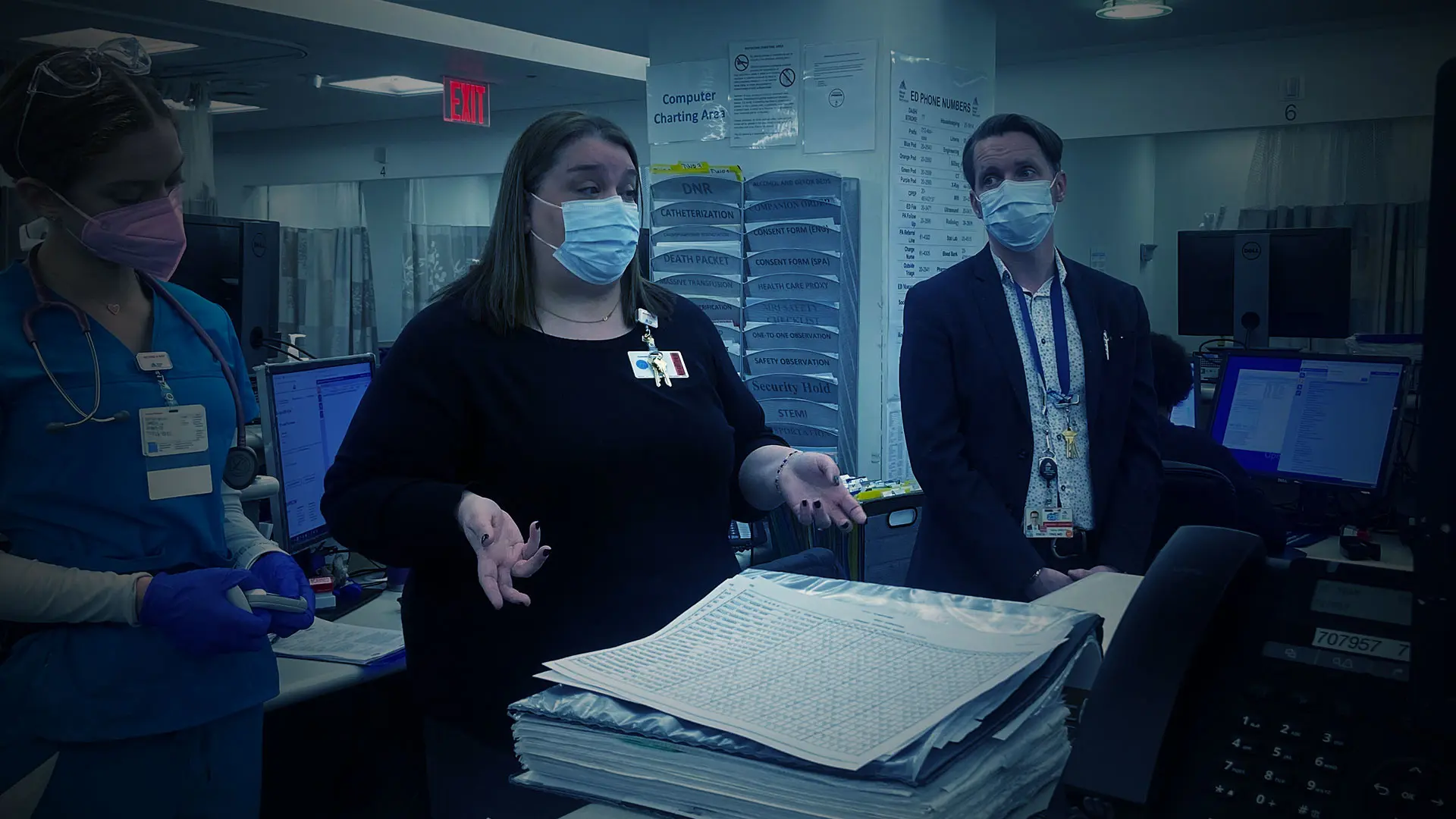Leader coaching is a key pillar of Mount Sinai’s Office of Patient Experience. The coaching team believes that strong leaders, who demonstrate and model best practices, will positively impact the morale and engagement of their teams, leading to a better patient experience. Patient Experience Coaches partner with leaders throughout the Mount Sinai Health System to strengthen leadership skills, such as accountability, emotional intelligence, and effective communication. This focus on supporting leaders of front-line teams, along with a deep commitment to improving the experience for patients, enables the coaches to play a key role in creating a psychologically safe and inclusive culture in which the workforce can thrive.
For the Patient Experience coaching team, 2022 was a year of transformation, with an emphasis on redesigning their strategy and coaching approach and developing metrics to show the impact of their work. “I’m incredibly proud of the team’s agility, creativity, and resolve to ensure that their coaching meets the needs of our leaders and that our organization can more clearly see and celebrate the impact of investing in our leaders in this vital way,” says Nicole Porto, Director of Experience Strategy, Engagement, and Coaching, and leader of the team.
The coaches developed standardized, accessible, easy-to-use modules for leaders on the key drivers of the patient experience, including communication, teamwork, and responsiveness. These modules break down large concepts into coachable behaviors that leaders can both demonstrate and hardwire into their staff’s practices. The team also created measurement tools and a dashboard that visually demonstrate the scope and effectiveness of their coaching.
“The coaching has predominately focused on nursing, but given the importance of teamwork, the coaching is now expanding to leaders who oversee the teams that partner very closely to enhance the patient experience,” Ms. Porto says.

In an Emergency Department interdisciplinary huddle at Mount Sinai Beth Israel, a team discusses how to regularly update patients who are waiting. From left: Caroline McManus, RN; Patient Experience Coach Diana Grillo; and Erick Eiting, MD, Vice Chair of Operations, Mount Sinai Downtown.
A top priority for the team was supporting staff members in effectively communicating and demonstrating empathy. The team launched a learning series, Coaches Corner, and debuted their empathy work with a session called “Communicating With Empathy: Making a Connection When It Matters Most.” The session was a success and led to requests for coaching across the Health System, Ms. Porto says. These are some of its key practices:
Communicating With Empathy: Put yourself in the shoes of another person and try to understand how they are feeling. It’s not only feeling the emotion of another, but also communicating that emotion. This can mean using phrases such as: “I understand this can be frustrating” and “I’d like to help.”
Service Recovery: Acknowledge any problem and work with the patient and family to make it right. A crucial tool is the LAST model: Listen, Apologize, Solve the problem, and Thank the individual. Most important, be genuine. Thank the patient or family member for bringing the problem to your attention, trusting you, or being patient and understanding.
Narration of Care: Keep patients and families informed by explaining the “what” and the “why” while you interact with them. This sharing of knowledge, skill, and expertise builds credibility and trust with the patient and their family member. Note that narration of care is not limited to the clinical team; nonclinical team members such as housekeeping staff, dietary, environmental services, security, and more can narrate care.
Teamwork: Positively position teammates for success with a communication tool called "managing up." This includes creating a positive impression of others before the patient or family meets them. For example, as they leave a shift, a nurse might tell a patient, “I will be going home to my family now. Justin is taking my place. I just shared with Justin all your important information. Justin is a fantastic nurse whom I have worked with for more than five years, and he is excellent.”
As a result of this commitment to coaching, the team from Mount Sinai was selected to present their work in March 2023 at a conference of the Beryl Institute, the leading research group on the patient experience.
Diana Grillo, coach at Mount Sinai Beth Israel, says, “It is so exciting to be a part of a team that is dedicated to enhancing the experience for every member of the Mount Sinai community. As a team, we have a vision of how we want to coach leaders on effectively communicating with empathy and are passionate in making sure that the right tools are in place to do so.”
In our patients' own words
"Everyone was incredible. Felt very taken care of. All staff members were courteous and kind—from when I first stepped into the facility and my first encounter was with the wonderful security person, to my last experience with the facility when I was wheeled out in a wheelchair, to the person meeting me, and to everyone in between. I cannot thank everyone there enough for the care provided to me. Kudos to Dr. Rodriguez for helping me to stay calm!"
– Ambulatory surgery patient, Mount Sinai Beth Israel
